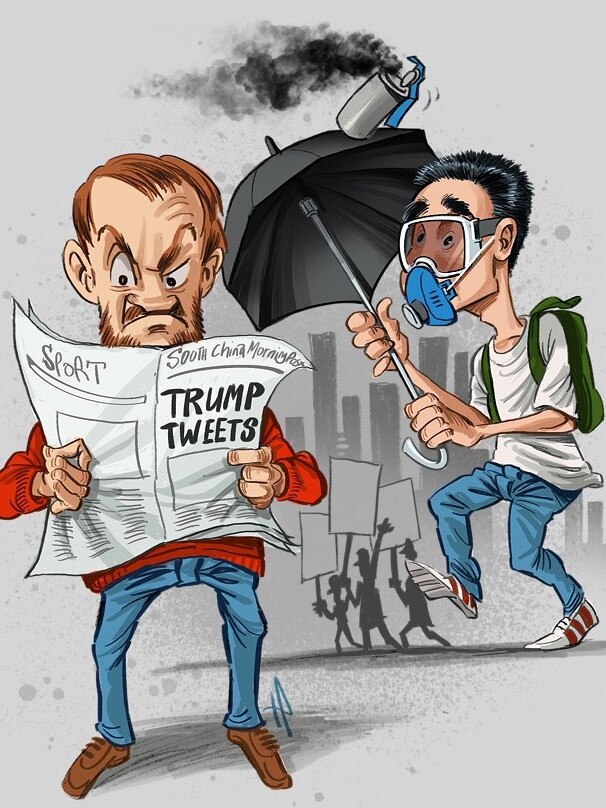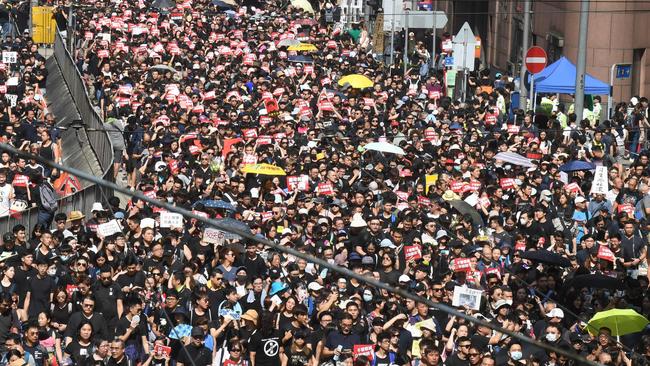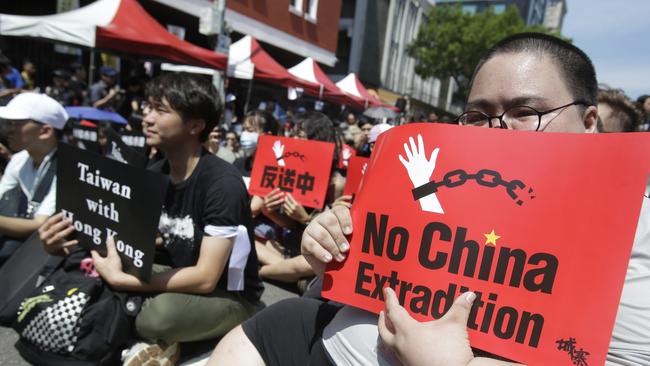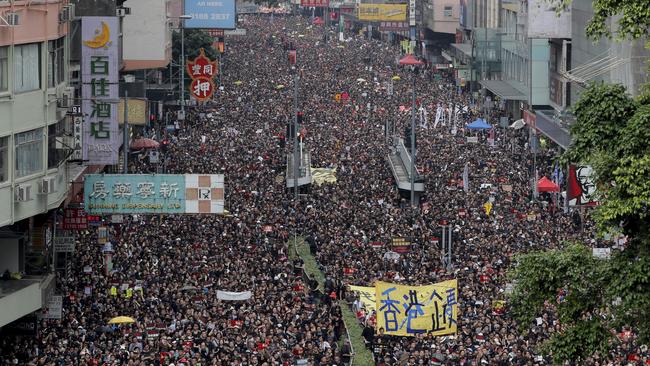Much of the world’s democratic West sat idle as Hong Kong’s people fought for their freedom
The people of Hong Kong have won a temporary reprieve, no thanks to Western liberals or governments unable to muster outrage over Beijing’s authoritarianism, writes James Morrow.
Three cheers for people power, right?
The Hong Kong protesters have won, their government has backed down on its extradition bill and — theoretically at least — Beijing won’t be able to scoop up anyone they like on whatever charges they can concoct and bring them to mainland China for interrogation and trial. For now.
It’s all been a great news story for the people of Hong Kong who, for a little while at least, will be able to keep some semblance of their independence intact.
But what about those of us in the West, which is supposedly the beacon of values like freedom of conscience and the rule of law? Where were we in all this?
That’s where the story gets a little less happy.

The fact is, far too much of the liberal, democratic West sat on its hands as the demonstrations unfolded, allowing Beijing to make a further mockery of the assurances it made about freedom and autonomy in Hong Kong when the city was handed over in 1997.
This silence came not just from Western governments who should have an interest in checking China’s dominance and promoting the rule of law but who also have delicate trade and security considerations at stake.
More telling was how those who loudly barrack for leftish small-l liberalism in the face of perceived threats to freedom like Donald Trump and Brexit and “populists” on YouTube were so largely silent when the actual liberties of Hong Kong were being fought over in the streets of Central.
MORE OPINION
Annette Sharp: Alan Jones deal has 2GB staffers nervous
Annette Sharp: Blache’s fragile pact with Bob’s children
Piers Akerman: Bob Hawke’s funeral shows Australia has lost its way
The UK’s Theresa May — who, admittedly, might have other things on her mind — was guarded on the protests.
But at the same time, the same Trump critics who protested either in person or in the press over the president’s recent visit also stayed shtum.
Donald Trump, in the midst of a trade war with China, somehow managed not to tweet about the protests.

Yet neither did even his most feral critics suggest he was showing an authoritarian streak by failing to call out the violence meted out to protesters.
And in Australia?
Well, consider that in the wake of the Tiananmen Square massacre, then-PM Bob Hawke teared up on national TV and permanently extended the temporary visas of Chinese citizens resident in Australia.
Fast forward 30 years and as Hong Kong residents copped tear gas and rubber bullets for protesting a law that could see any one of them swept up into mainland China’s gulags, Foreign Minister Marise Payne could only offer a statement supporting “the right of people to protest peacefully” and calling for “all sides to show restraint and avoid violence”.
None of this equivocation bodes well for the future.
Because while China may have backed down in the face of protests which offered them no good options — and there’s no doubt that Hong Kong chief executive Carrie Lam was following orders from Beijing when she pulled the law from consideration — two things remain clear.

Number one, China will again try to pass into law the ability to do that which they have already been doing informally for some time, namely, bring Hong Kong natives to the mainland to face trial for crimes real or imagined.
As UTS professor Dr Chongyi Feng wrote in The Daily Telegraph last Friday, “the Chinese security apparatuses have routinely persecuted Hong Kong residents by framing them for crimes they did not commit”.
Journalists, publishers, and booksellers have all been arrested while in mainland China or even abducted on Hong Kong soil and sentenced to long stretches on spurious charges spurred by “crimes” such as distributing works critical of Xi Jinping.
Number two, China’s rulers will have watched the reaction of the West over the course of the past week and realised that they received little in the way of condemnation from Western liberals or their governments.

Given China’s conquest of the South China Sea in defiance of international law, and the increasingly worrying signals that Taiwan is next on Beijing’s shopping list, this should worry everyone — particularly those of us in Australia who could see ourselves drawn into conflict or see our own freedoms limited by Beijing’s plans.
And it should give no comfort to those who are quick to use terms like “Islamophobia” to shut down debate in the West but who have been silent in the face of a China that has put one million Uighur Muslims in re-education camps and tried to stamp out the practice of the religion by dynamiting mosques and bulldozing shrines.
It’s all too easy to be cynical about governments that don’t want to stand on principle, as depressing as it may be.
But it’s also clarifying to note that too many who claim to fly the flag for an ever-expanding liberal tolerance and inclusiveness are willing to stay quiet when it doesn’t affect their interests, as if the principles they claim to stand for are really just levers to maintain their own power.


